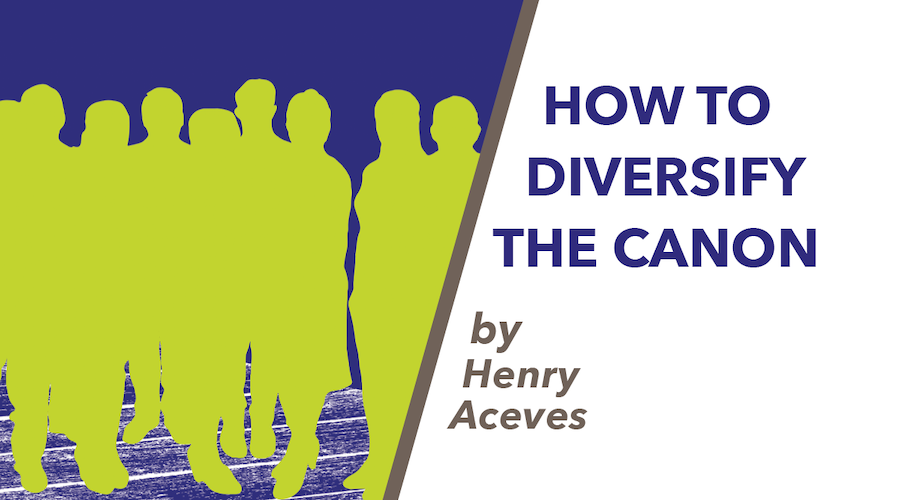How To Diversify the Canon

by Henry Aceves, Production Dramaturg (NewFest New Play Workshop: Amanuensis, or The Miltons)
Paradise Lost has been considered an essential work in the English literary canon since the first version was published in 1667. Clocking in at over 10,000 lines of blank verse, it is undoubtedly the work of a dedicated and passionate writer with a masterful command of language; however, it’s also the work of someone with years of private tutoring, elementary, and higher education under his belt. It wouldn’t be a stretch to think that Milton was passionate about education, and he was– education for men and boys. He tutored his nephews and young men who worked for him as scribes, but never sought out a formal education for his daughters. In doing so, Milton set them up to be largely forgotten by a society that did not privilege the voices of women unless they were educated and upper-class. Amanuensis, or The Miltons seeks to rectify this cultural amnesia surrounding Deborah, Anne, and Mary Milton, but the question remains: how do we give voice to those stories that never got to be told?
Well, I’m introducing a brief guide on how to do just that, inspired by the steps taken by the playwright of Amanuensis, or The Miltons, L M Feldman. So without further ado, here are a few steps that I’ve identified if you want to tell more diverse stories but don’t know where to start.
1. Identify the gaps
Let’s face it: cisgender, heterosexual, white, Christian men created the vast majority of the Western literary and artistic canons because for centuries, they were the only ones allowed to get the education and have the resources required to create. There are countless stories that have not yet been told because those who lived them never were able to write them.
2. Find a story
This takes the most time. I find it the most helpful to narrow down what time period I’m looking at and then go from there. It’s a controversial opinion, but I think that Wikipedia can be a really good jumping-off point for this step. It doesn’t matter if you just know the person’s name and when/where they lived; if it’s a story that interests you, tell it.
3. Create!
Finding a story and researching it might take the most time but I think that creating has the potential to be the most difficult. Just let your passion take the lead. Also get enough sleep. Sleep always helps.
These are the main three things and I know that they’re general, but they’re important. To paraphrase L: many of these stories haven’t been erased—they were never able to be written.
We have the opportunity to write them now. So let’s do it.
—–
Due to the COVID-19 pandemic, all scheduled performances (March 26–29,2020) of NewFest New Play Workshop: Amanuensis, or The Miltons were canceled.

